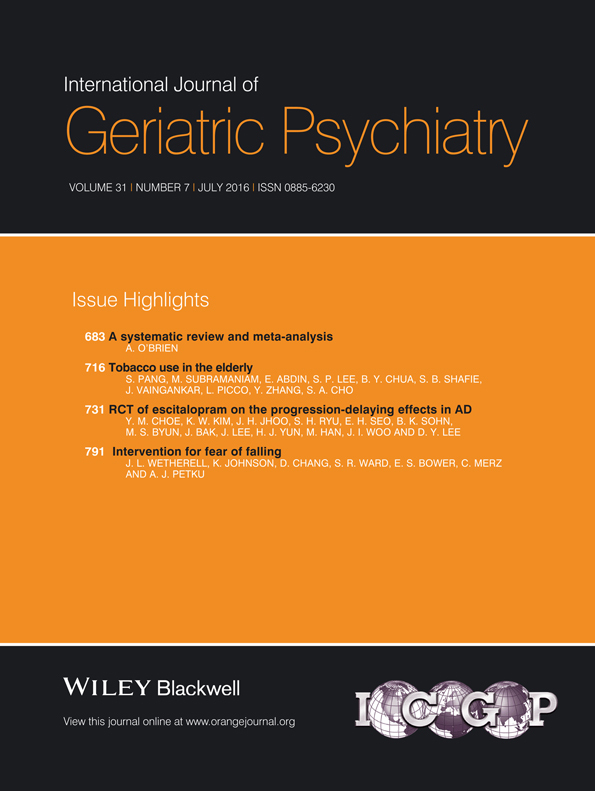Multicenter, randomized, placebo-controlled, double-blind clinical trial of escitalopram on the progression-delaying effects in Alzheimer's disease
Abstract
Objectives
A series of preclinical studies have suggested that selective serotonin reuptake inhibitor antidepressants not only stimulate neurogenesis but also have neuroprotective effects. The present study primarily aimed to investigate whether escitalopram would decelerate the brain atrophy of patients with mild-to-moderate Alzheimer's disease (AD). We also assessed the effects of escitalopram on the cognitive function and neuropsychiatric symptoms of these participants.
Methods
Seventy-four probable AD patients without major depression were recruited from four dementia clinics of university hospitals and randomly assigned in a 1:1 ratio. Each group received 20 mg/day of escitalopram or placebo for 52 weeks. The primary outcome measures were the change rates of hippocampal and whole brain volume on magnetic resonance imaging for 52 weeks. The Alzheimer's Disease Assessment Scale—cognitive subscale, Mini-Mental State Examination, Neuropsychiatric Inventory, and Cornell Scale for Depression in Dementia (CSDD) were also applied.
Results
We did not find any significant differences in the changes of hippocampal or whole brain volume between the groups. Escitalopram showed significant beneficial effects on the CSDD score at 28 weeks compared with placebo (t = −2.17, df = 50.42, p = 0.035), but this finding did not persist throughout the study.
Conclusion
The findings of the present study do not support the role of escitalopram as a progression-delaying treatment for AD. However, the negative results of the present trial should be interpreted cautiously because of the relatively small sample size. Further large-scale escitalopram trials targeting the earlier stages of AD, even prodromal AD, are still needed. Copyright © 2015 John Wiley & Sons, Ltd.




